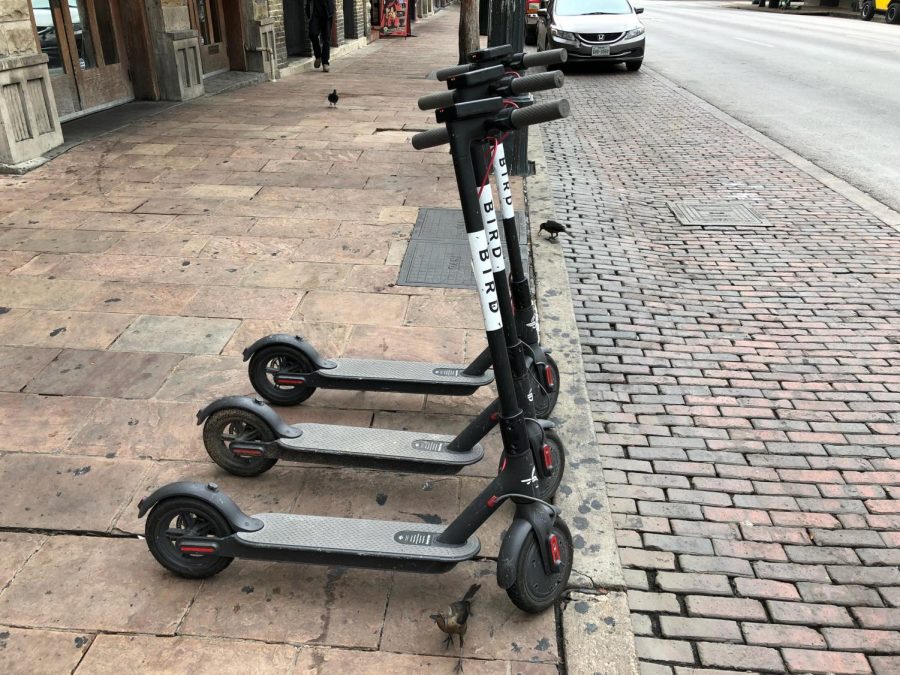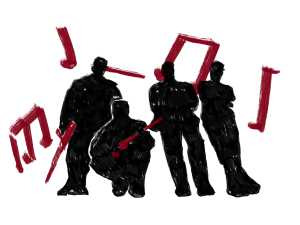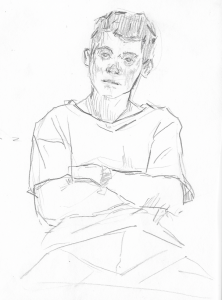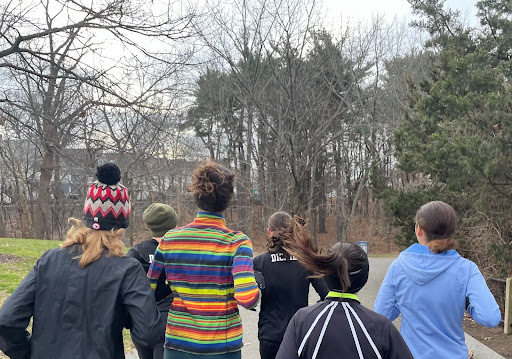BIRD Scooters: A New, Electronic Way to Get Around
City of Cambridge Addresses Recent Influx of Potentially Dangerous Electronic Scooters
The City of Cambridge has recently impounded all BIRD scooters.
September 27, 2018
What’s the deal with BIRD scooters?
Over the past few months, Cambridge has had an influx of electronic scooters created by the company BIRD. This scooter sharing service is similar to Blue Bikes in that scooters are left all around the city and can be unlocked in order to use. However, BIRD differs from its bike-sharing counterpart when it comes to its relationship with the city.
Whereas Blue Bikes spoke extensively with city officials before implementing bike stations around Cambridge, BIRD dropped off dozens of scooters seemingly overnight without telling anybody about their plan. Because these scooters do not need stations, and can be picked up and dropped off anywhere, they have been quite popular with Cambridge residents. Walking down a major street like Massachusetts Avenue or Cambridge Street over the past few months, it was almost inevitable to see a person riding one of the scooters. Senior Neely McKee noted, “[The scooters] are a great alternative to cars in terms of sustainability, and I guess the backlash they cause is more of a symptom of bad urban planning and less about the scooters themselves.”
The city has cracked down on BIRD for two main reasons. First, the company did not properly communicate about the introduction of these electronic vehicles into the Cambridge community. Second, the scooters pose safety hazards and legal concerns greater than that of a bicycle, as in the case of Blue Bikes.
“My concern would have been the scooters that are left behind after someone rides them.”
— Mohammed Shafim
Cambridge police have begun to impound all BIRD scooters until further notice, but it has not proven easy because of the open drop-off policy BIRD has. Since there are not specific locations to drop the scooters, the police must remove each individual scooter, which is an arduous process even with the BIRD app which identifies the scooters locations. Mohammed Shafim ’18 said, “I don’t see them as a problem because the city was really quick to get them out the city, but my concern would have been the scooters that are left behind after someone rides them. Though, I totally see a Blue Bike system with the scooters working.”
The main safety concern surrounding these motorized devices has been the lack of helmets provided with the scooters. In the state of Massachusetts, it is illegal to ride a motorized scooter without a helmet, and yet almost no user of the scooter wears a helmet.
On the BIRD website, they address this problem, asking all users to bring a helmet from home. This seems to be an unlikely solution, seeing how one main appeal of the scooters is how spontaneous the process of unlocking and riding one is. Former BIRD user and senior Adam Dincher commented on the situation, stating, “Regulation should be left for the city to decide. [The scooters] are just as expensive and not as efficient as bikes.” Only time will tell how this controversial company expands, but for now, the buzz over BIRD has died down as their ban slowly removes them from the city.
This piece also appears in our September 2018 print edition.











